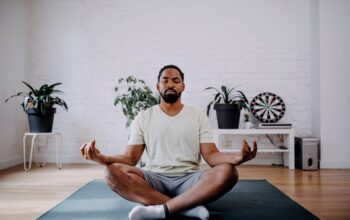Experiencing an anxiety attack can be an incredibly distressing and overwhelming ordeal. The sudden surge of intense fear and physical symptoms can leave you feeling helpless. However, it’s essential to remember that there are strategies you can employ to regain control and find relief. In this article, we’ll explore practical, actionable steps to help you deal with anxiety attacks and navigate them with confidence.
Understanding Anxiety Attacks: What Happens in Your Body?
Before diving into coping strategies, it’s crucial to understand what occurs during an anxiety attack. These episodes trigger the body’s “fight or flight” response, leading to a surge of adrenaline. This surge can cause various physical symptoms, including rapid heartbeat, shortness of breath, trembling, and a sense of impending doom.
Grounding Techniques: Connecting with the Present Moment
One of the most effective ways to combat the intensity of an anxiety attack is through grounding techniques. These exercises focus on bringing your awareness back to the present moment, providing a sense of stability and control. Simple practices like deep breathing, naming objects around you, or feeling the texture of an object can help anchor you in reality.
Utilizing Progressive Muscle Relaxation
Progressive muscle relaxation is a powerful tool for reducing physical tension and promoting relaxation. By systematically tensing and then releasing different muscle groups in your body, you can alleviate the physical symptoms associated with anxiety attacks.
Practicing Mindfulness Meditation
Mindfulness meditation encourages observing your thoughts and sensations without judgment. By acknowledging and accepting what you’re experiencing in the moment, you can reduce the power of anxious thoughts and find a sense of calm amidst the storm.
Engaging in Self-Care Routines
Prioritizing self-care is crucial in managing anxiety attacks. Establishing a routine that includes regular exercise, balanced nutrition, adequate sleep, and relaxation techniques can significantly improve your overall mental well-being and resilience to stress.
Seeking Professional Support
If anxiety attacks persist or significantly disrupt your daily life, seeking professional help is a sign of strength, not weakness. A mental health professional can offer personalized strategies, such as cognitive-behavioral therapy or medication, to help you effectively manage and overcome anxiety attacks.
FAQs (Frequently Asked Questions)
Q: Are anxiety attacks the same as panic attacks?
A: While the terms are often used interchangeably, they can refer to slightly different experiences. Anxiety attacks typically arise from a specific trigger, while panic attacks can occur suddenly and without an obvious cause.
Q: Can caffeine and alcohol worsen anxiety attacks?
A: Yes, both caffeine and alcohol can exacerbate anxiety symptoms. It’s advisable to limit or avoid consumption if you’re prone to anxiety attacks.
Q: How long do anxiety attacks typically last?
A: The duration of an anxiety attack can vary from person to person. They may last anywhere from a few minutes to several hours. Implementing coping strategies can help shorten their duration.
Q: Can deep breathing alone stop an anxiety attack?
A: Deep breathing is a powerful tool, but it may not always be sufficient to stop an anxiety attack entirely. Combining deep breathing with other grounding techniques can be more effective.
Q: What if I experience anxiety attacks in public?
A: If you find yourself experiencing an anxiety attack in a public setting, focus on finding a quiet, comfortable space where you can implement grounding techniques. It’s perfectly okay to prioritize your well-being.
Conclusion
Dealing with anxiety attacks requires a combination of self-awareness, practical techniques, and, if necessary, professional support. By incorporating grounding techniques, relaxation practices, self-care routines, and seeking help when needed, you can empower yourself to navigate anxiety attacks with resilience and strength.





